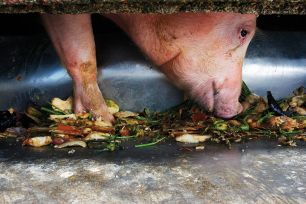
African swine fever
Biosecurity a shared responsibility

African swine fever (ASF) is present in wild and domestic pigs in regions of Africa and Eastern Europe, and since 2018, has moved into Western Europe (notably Belgium) and Asia.
Over the past few months, ASF has continued its spread throughout South-East Asia, with confirmed cases in China, Mongolia, Vietnam, Laos, Cambodia, Myanmar, North Korea, South Korea, the Philipines and, most recently, Timor Leste.
ASF is a highly infectious viral disease of domestic and wild pigs of all ages. Australia has never had a reported incident of ASF and it is crucial that we remain free from the disease. An outbreak of ASF in Australia would have significant impacts on pig production and health. It would also compromise our access to economically important international markets and be very costly and difficult to eradicate.
Humans are not susceptible to ASF. The Australian Government is actively responding to this new outbreak, however we all have a role in preventing exotic diseases like ASF arriving in Australia.
What you can do to prevent an outbreak
Do not feed swill to your pigs
All pig owners, including large scale pig producers or anyone who has a pet pig in their backyard, need to keep their animals healthy. This includes providing them with good food that is safe.
Pigs must not be fed meat, meat products or food that has been in contact with meat, or imported dairy products. This is known as swill feeding. Swill feeding is illegal in Australia because of its potential to introduce serious animal diseases like ASF and foot-and-mouth disease. Swill feeding is believed to have contributed to the international spread of ASF.
For more information about swill feeding and the responsible disposal of food waste, visit compliance and biosecurity.
Implement good biosecurity practices
Pig producers are encouraged to review their biosecurity arrangements, including the risks associated with overseas visitors and workers returning from overseas. Producers should follow accepted good biosecurity practices (including entry controls and protocols, hygiene requirements, and visitor logs) and review stock transport practices and arrangements.
Do not pack pork
People visiting or returning to Australia, particularly travelling from countries where ASF may be present, should be aware of their biosecurity obligations. Before you travel, check what can and cannot be brought into Australia.
You must declare on your Incoming Passenger Card any food and animal products, and other risk items. This includes footwear and equipment that has been in contact with animals or worn in a rural area. The safest thing to do is not bring food with you, and make sure your items are clean before you pack your bags.
Consider your online purchases
When buying goods online, you need to consider where your goods are coming from, and if they are being shipped internationally, whether they will meet our biosecurity conditions when they arrive in Australia.
Before you make your purchase, check what can and cannot be mailed to Australia. Animal diseases including ASF, can survive for long periods of time, making it possible for diseases to spread to new areas.
Report any signs immediately
If you suspect ASF in domestic or feral pigs, contact Local Land Services, your local veterinarian and/or phone the Emergency Animal Disease Watch Hotline on 1800 675 888 immediately.
For more information about feeding and caring for your pigs, visit Australian Pork Limited.
For more information regarding the current situation with African swine fever, visit Animal Health Australia.
For more information about ASF and recognising exotic diseases in pigs, visit Recognising exotic diseases of pigs (PDF, 1493.72 KB).

